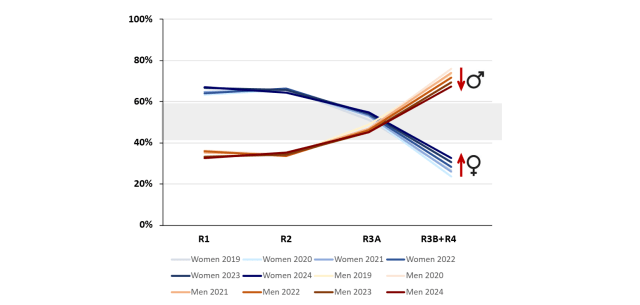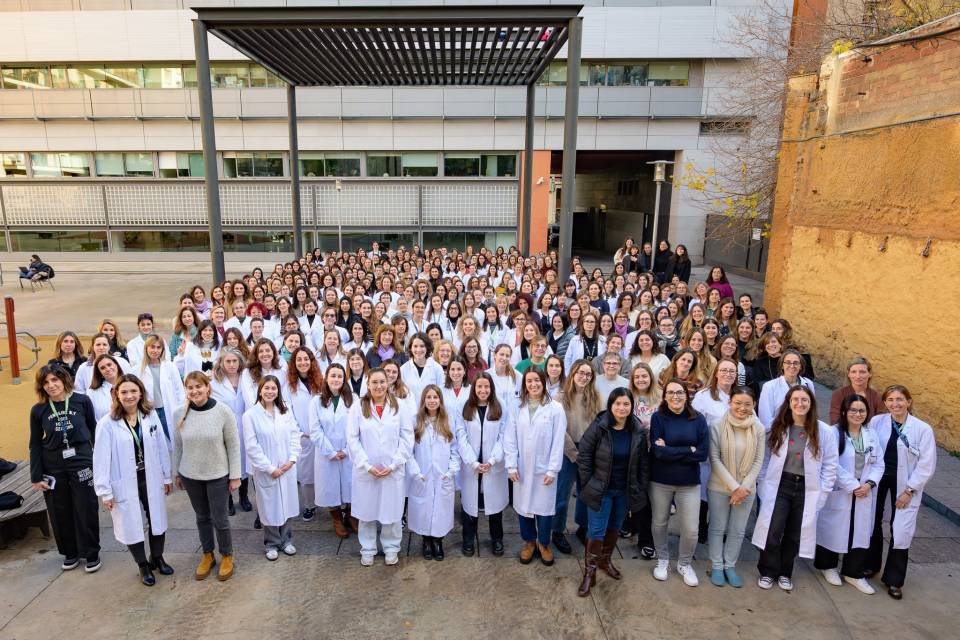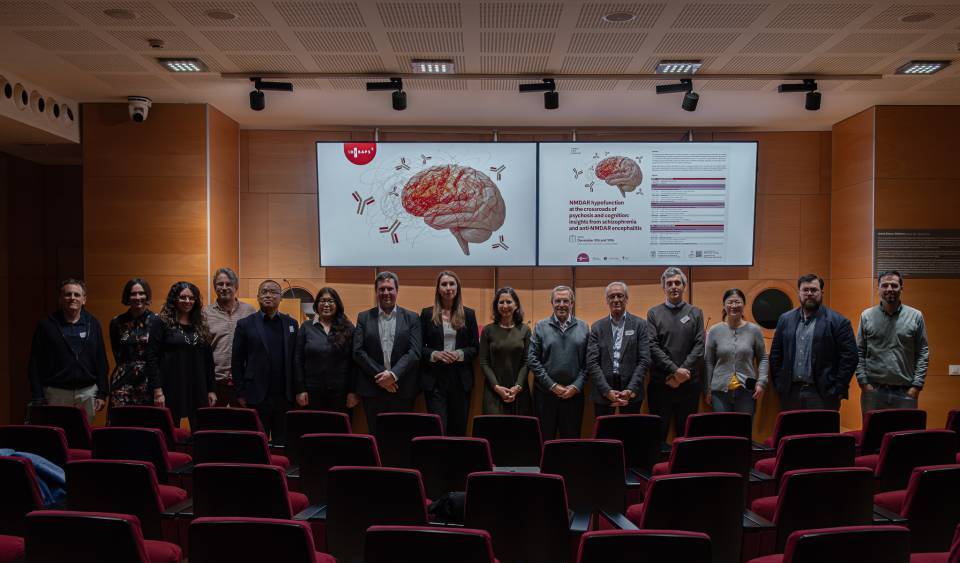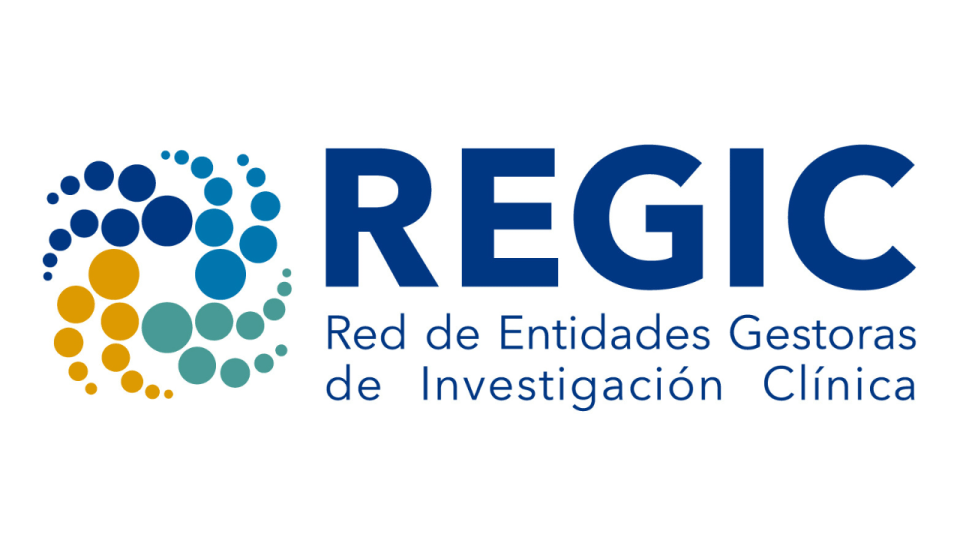The gender scissor-shaped curve still lingers in the research sector today. Whilst the technical and research staff of research centres and universities are mainly women, group leaders and centre directors are mostly men. This is true in the vast majority of research centres and IDIBAPS is no exception, though a positive trend has been observed in recent years.
According to the latest institutional report, 1,304 women work at IDIBAPS. They account for 63% of the institution’s total staff, which total 2,062 people. Whereas most of the staff in the structure, scientific platforms and research groups are women, only 31% of group leaders are.

The situation has improved slightly, since just over 20% of group leaders were women five years ago. Likewise, parity has already been achieved in the case of junior group leaders (R3B), in which 60% are women and 40% are men. This graph shows the changing trend in the percentage of male and female group leaders since 2019:

The causes of the gender scissor-shaped curve are diverse and complex. Sexist attitudes in organisations and the different ways that family responsibilities are shared between men and women are just two of them. IDIBAPS researchers have studied this in the various editions of the initiative ‘Female talent: scientists speak out’ (edition 2024 / edition 2023 / edition 2020).
Efforts are being made at IDIBAPS to reverse the situation. An Equality Plan has been drafted that includes a battery of actions to promote equal opportunities in the institution and avoid situations of discrimination.
For instance, a protocol has been developed to prevent, detect, act on and resolve situations of sexual harassment and harassment based on sex, sexual orientation and/or sexual identity.
The position of a roving researcher has also been created to provide support to research staff during sick leave or long-term leaves of absence in their research career. The creation of this new position aims to counteract the effects that motherhood and/or caring for young children have on women’s research careers, especially those who hold or have the potential to hold research leadership positions.
IDIBAPS has also developed the PROGENDERS decalogue, a practical tool that helps us to conduct research whilst taking the sex/gender variable into account throughout the scientific process. It is intended for professionals who conduct any type of biomedical research and is aimed at improving the quality of the research that is being carried out at our institution. This decalogue has also won an ISCIII Responsible Research and Innovation Award.
To commemorate the International Day of Women and Girls in Science 2025, IDIBAPS released a photograph of the women who work at the institution, which is the one illustrating the news item. Below you can see the photo shoot’s making of:

In this same vein, tomorrow IDIBAPS will hold the seminar ‘How to overcome together sex and gender biases in artificial intelligence?’ You can read the programme by clicking here.




